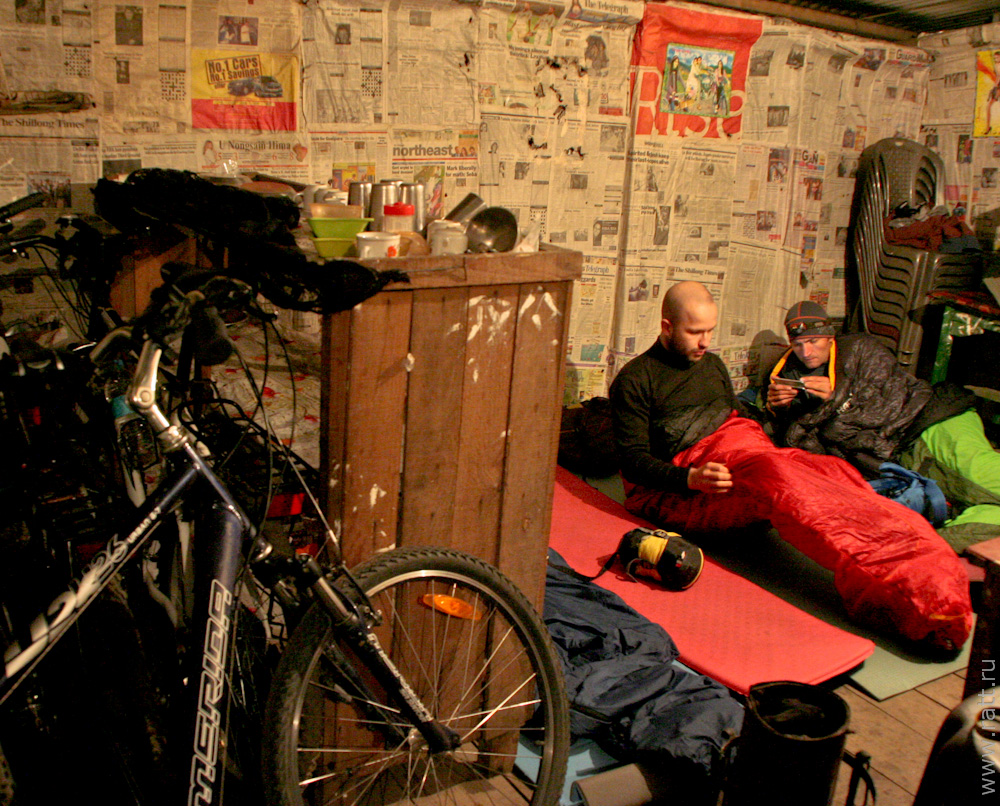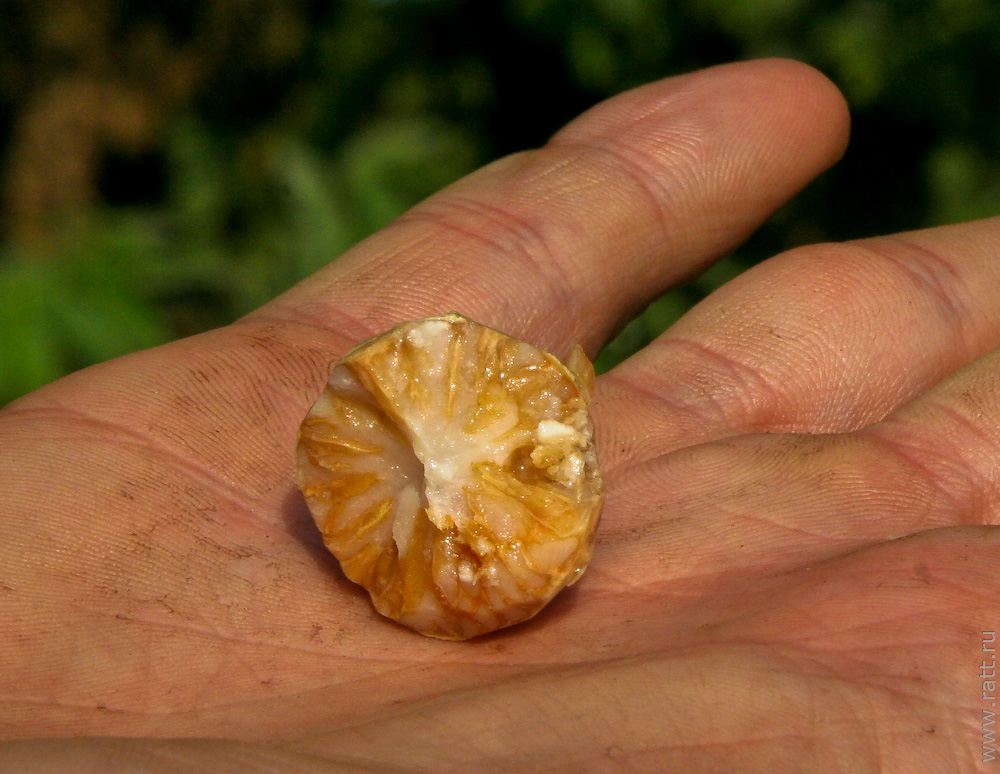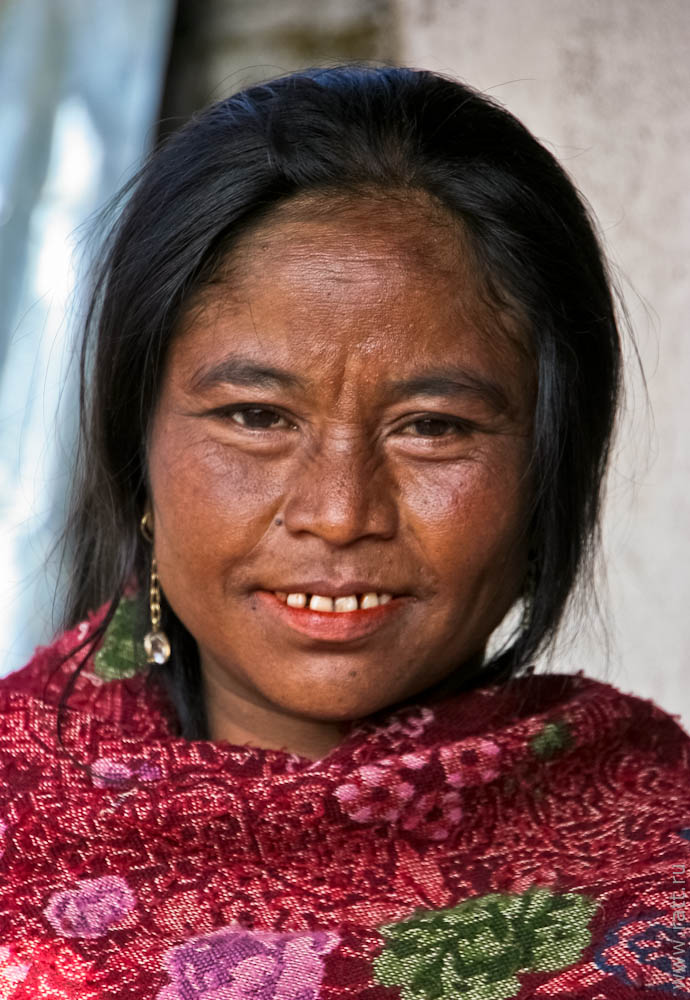Our last little story on Meghalayans, before we plunge into the dusty clouds of Manipur.
This woman also has a talking name, Bethel – and she is to some point a very picture of the whole khasi people.
First thing her name tells us is her being a Christian: Bethel is an ancient Biblical name. In Meghalaya you can meet a whole list of names from the Old Testament – little dark skinned boys and girls would all be revered Ebenizers, Noahs, Ruths and Judiths.
Our Bethel has a small food stand, as they call it here, on a “coal” highway, serving mainly the truck drivers. This diner is actually a tiny shed of nailed together wood boards, the walls are fancily decorated with rather fresh newspapers ( she changes those once in a while, so you can always read some two month old news at your morning tea). The food stand is hidden behind the wighway turn, so not too much people ever notice it, but Bethel still keeps her chin up. We pedaled into her shelter late at night, on dusty bikes, with a traditional motto of Russian travellers: “Can you get us some tea, we are so hungry, that we don’t know where to spend a night?” This didn’t scare Bethel away. She made a fire, brought a traditional coal stove for us to get warm and started serving all sorts of food she didn’t sell out that day.
 At night any food stand can be transformed into a nice motel
At night any food stand can be transformed into a nice motel
The five of us very soon broght her a week’s revenue; then guided by Bethel we moved the tables aside and very soon were sound asleep. When we woke up, there was big construction going on outside: practical Bethel was using the earned money to put on a new bright sign-board.
This might be usual thing for you, but for provincial India this is more than fantastic. You will see all those people here, selling bananas, cigarettes and paan, sitting on one corner with these same cigarette pack for many years and handing the business to their kids, that would also seat on the same box for many years and never try to change anything. A business-minded woman here is something like a fairy-tale. But this doesn’t hold true for the matrilineal khasi. (It’s interesting, they not only hand down legacy to daughters, but it’s the youngest daughters who fall heir to property).
Bethel is really proud of her name: she doesn’t know a thing about the ancient Biblical city. For her, as well as for the whole South-East Asia, betel is a plant. A plant probably sharing popularity with the indispensable rice. Betel leafs together with nuts of a betel palm and slacked lime are chewn everywhere from Pakistan to Micronesia Islands. Chewn and spitted away together with the read saliva. All sorts of grounds are found for thi chewing – medical, philosophic, psychological. In India the mixture is called paan or pan. The habit to chew pan is as old as time. Pan keeps drivers awake and makes the soldiers brave, makes those miserable feel happy, those weak strong. Actually it’s a light legalized drug.
 Кусочки ореха, известь и иногда другие специи заворачиваются в листья бетеля. Смесь вызывает повышенное слюноотделение и тонизирующий наркотический эффект.
Кусочки ореха, известь и иногда другие специи заворачиваются в листья бетеля. Смесь вызывает повышенное слюноотделение и тонизирующий наркотический эффект.
 Бетельные орехи содержат большое количество красного пигмента, поэтому слюна становится угрожающего темно-красного цвета. На вкус они горьковатые и слегка вяжут
Бетельные орехи содержат большое количество красного пигмента, поэтому слюна становится угрожающего темно-красного цвета. На вкус они горьковатые и слегка вяжут
Повсюду здесь на улицах встречаются люди со слегка расширенными зрачками, беспрерывно сплевывающие кроваво-красную слюну. Поначалу многочисленные жутковатые пятна на асфальте и стенах кажутся последствиями грандиозного мордобоя – это очень впечатляет. Привыкнув, относишься спокойнее, но выглядит это все равно неприятно. Сейчас в приличных заведениях даже начали вешать таблички о запрете на плевки.
 В Мегалае бетель жуют все, от мала до велика, мужчины и женщины. От долгого жевания слизистая становится красной – любителя пана всегда можно узнать в толпе
В Мегалае бетель жуют все, от мала до велика, мужчины и женщины. От долгого жевания слизистая становится красной – любителя пана всегда можно узнать в толпе
Кхаси считают бетель своим национальным достоянием. Бетель – символ гостеприимства Мегалаи. Гостю полагается в первую очередь предложить немного пана, и вежливый гость обязательно пожует его вместе с хозяином. Кхаси, великие мастера рассказывать истории, рассказали нам на этот счет довольно кровавую легенду:
«Некогда жили на земле два друга, У Рибха и У Бадук. Они выросли вместе, но один остался бедным крестьянином, а второй разбогател, удачно женился и стал жить в другой деревне. Бедный друг часто ходил в гости к богатому, и тот щедро его угощал. Однако в богатой деревне стали поговаривать: что же ты сам не пригласишь друга к себе и не угостишь его? У Бадук пригласил богатого друга, вернулся домой и понял, что у него не найдется ни рыбы, ни курицы, ни даже горстки риса. Он прошелся по всем соседям, упрашивая одолжить ему еды, но вернулся с пустыми руками. Тогда с горя он схватил нож и зарезал себя. Жена, придя домой, увидела У Бадука с ножом в груди, выхватила тот нож и тоже себя зарезала.
Как раз в это время в дом пробрался вор. Он нашел двух зарезанных людей и понял, что его обвинят в убийстве. Как вы понимаете, и он схватил тот же нож и последовал их примеру.
Когда приехал У Рибха и узнал о трагедии, он начал горячо молиться богу, умоляя его дать всем людям возможность быть гостеприимными, вне зависимости от их достатка. Бог услышал его молитвы, и на месте трех тел выросли три растения: бетель, бетельная пальма и табак. Теперь даже бедные люди могли достойно принимать своих гостей и угощать их.»
С тех пор все кхаси, независимо от их достатка, неизменно предлагают своим гостям бетель и табак, и этот жест считается более важным, чем предложение крова и трапезы.









4 Responses to / Betel